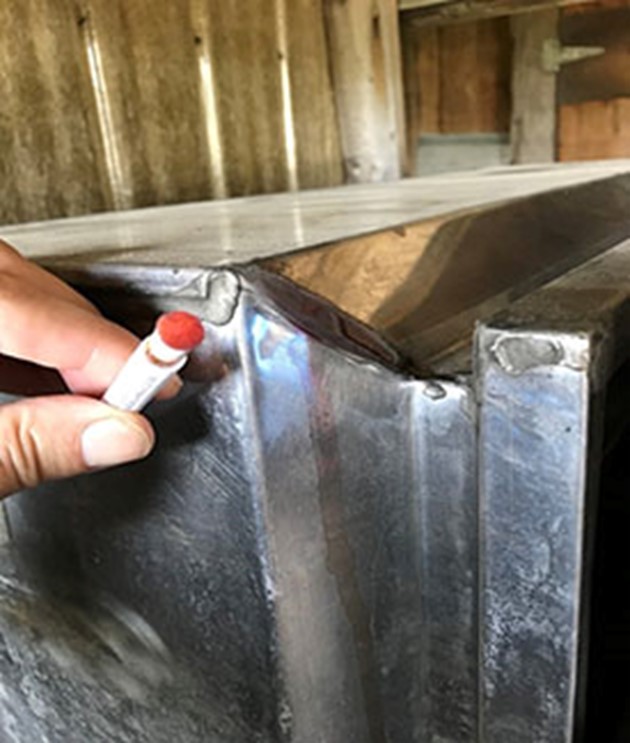Preventing lead contamination in maple products
Learn how to identify, test for and avoid lead contamination in maple products from lead-bearing equipment.
Overview
Lead is a naturally occurring element that is known to be a human health hazard. Children are particularly vulnerable.
Chronic exposure to lead can increase the risk of:
- kidney damage
- nerve damage
- infertility
Lead contamination in maple products
Maple products that are produced using lead-bearing equipment can become contaminated with lead.
Ontario Regulation 119/11 - Produce, Honey and Maple Products (O. Reg. 119/11) under the Food Safety and Quality Act, 2001, requires that all:
- equipment
- utensils
- containers
- packaging materials
- other food contact surfaces
used during the production and storage of maple products and maple sap must be made from food-grade, non-toxic materials.
In the context of lead, this means that lead-bearing equipment, utensils, packing materials and tools cannot be used to produce or package maple products or maple sap.
Refer to Premises and food grade material requirements for producing maple syrup in Ontario and to Section 6 of the regulation for more information about this requirement.
Avoiding lead contamination
When purchasing, manufacturing or repairing equipment, it is important to ensure all materials meet regulatory requirements and are made from food-grade, non-toxic materials.
As a maple product producer, you are encouraged to work with your equipment vendor to verify the equipment is constructed from food grade material. Examples of food grade materials include:
- stainless steel (series 200, 300 or 400)
- aluminum alloy (series 1000, 3000, 4000, 5000 or 6000)
- glass (use caution, as there is potential for breakage)
- filter fabric that meets food-grade standards
- food-grade plastic, including plastic piping or tubing that meets food grade standards
Examples of non-food grade materials that should not be used include, but are not limited to:
- terneplate coating
- lead solder
- non-food grade plastic
- galvanized steel
- mild carbon steel (painted or unpainted)
- brass
- bronze
- copper
- wood
Lead sources can be found on all types of equipment used in the production system, including equipment or materials with lead soldering. Examples of maple syrup equipment that may contain detectable lead sources include, but are not limited to:
- evaporator pans
- galvanized collection tanks
- bronze gear pumps
- lead-soldered pans
- sap buckets
- sap tanks
- syrup storage containers
Figure 1. Visual examples of food grade and non-food grade equipment.
How to check equipment for lead
Testing new and used equipment for lead can be done quickly by using lead test kits. Lead test kits contain a chemical that changes colour when it comes into contact with lead.
You can request a lead test kit free of charge from OMAFRA, or purchase it at retail.
To check your equipment for lead, follow these steps:
- Choose an internal surface to test that comes into contact with maple syrup or sap, such as a soldered seam.
- Prepare the surface by following the instructions included with your test kit. Typically, the test surface is prepared by cleaning the surface of any dirt, residual maple sap or syrup, rust, or other surface coating. This can be done by wiping the surface using water and a paper towel or cloth.
The surface should then be “roughed” with sandpaper, a knife or an emery board. Roughing exposes any existing lead particles so that they can come into contact with the testing agent. - Activate the testing swab or wipe by following the instructions within the test kit package.
Apply the reagent to the prepared surface. If the solution changes colour, as outlined in the test kit instructions, then lead is present on that surface.

Figure 2. An evaporator pan that has tested positive for lead.
All lead bearing equipment must immediately be removed from the maple production system.
Contact us
For more information or to request a lead test kit, please contact OMAFRA's Food Safety Inspection Delivery Branch by email at fpo.omafra@ontario.ca or call